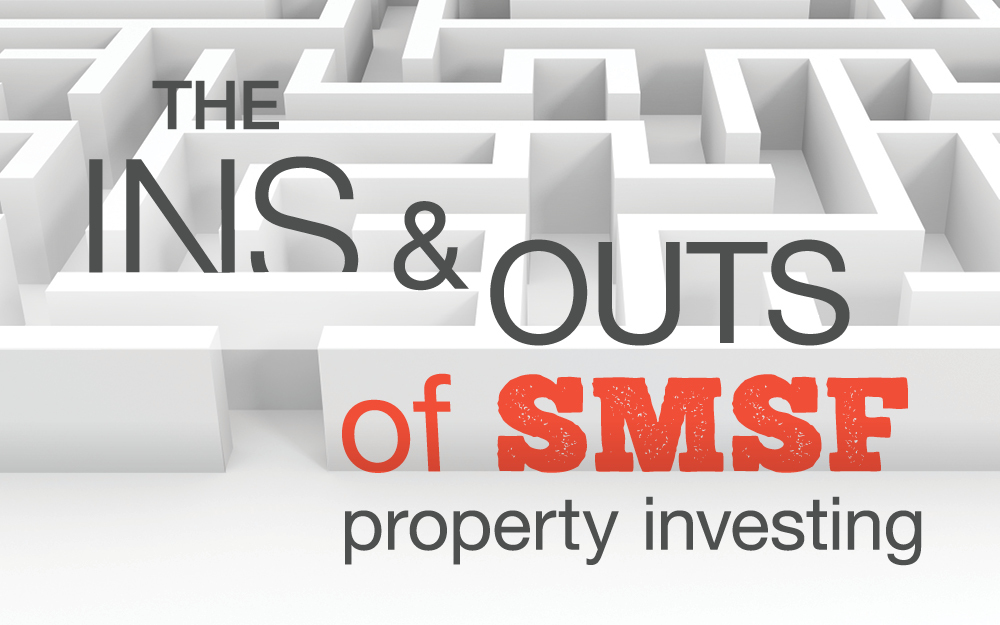 With a property market recovery underway, most notably in Sydney and Melbourne, Australian investors are once again pursuing their love affair with property investing.
With a property market recovery underway, most notably in Sydney and Melbourne, Australian investors are once again pursuing their love affair with property investing.
For many investors, a popular way to invest directly in residential or commercial property is through their self-managed super fund (SMSF). In fact, Australian Taxation Office (ATO) statistics show property is the third most popular asset class in Self-managed super fund portfolios.
Part of the attraction of holding investment property within your SMSF is the concessional tax rates applying in the super system, with rental income taxed at only 15% – or nil if fund members are in pension phase. As with property investments outside super, rental property expenses are tax-deductible and if the property is owned for more than 12 months any capital gain is taxed at a discount rate.
Keep an eye on the super rules
But before you rush off to buy a property through your SMSF, there are some key rules you need to keep in mind if you want to stay on the right side of the tax man and superannuation law.
The key one is that the property must meet the sole purpose test, which requires any SMSF investment to solely provide retirement benefits to the fund’s members.
This means you can’t buy a residential property through your SMSF for you or a family member to live in – even temporarily.
A property owned by your SMSF can be rented, but it must be at normal market rates. The tenant must not be a person or entity related to a fund member if the property’s market value exceeds 5% of the total value of the SMSF’s assets.
Buying a commercial property
SMSFs are unable to buy a residential property from a related party, but if you purchase business real property – such as your business premises – and pay rent at the market rate, it’s not considered a related party transaction.
The property must be used exclusively in a business and the price must be normal market value.
If your SMSF rents out the property to your business, it must be at commercially competitive rates and you must not gain a financial advantage.
Regular rental payments must be made as with a normal lease.
Borrowing to buy an SMSF investment
In general, SMSFs can’t borrow to buy an investment asset, but there is an exemption if the fund enters into a special loan structure called a limited recourse borrowing arrangement (LRBA) to purchase a property.
With an LRBA, if the loan defaults the lender only has recourse to the property – not the SMSF’s other assets.
LRBAs are complex borrowing arrangements with different loan conditions to a normal mortgage. If they are structured incorrectly, the borrowing exemption lapses and the SMSF will have breached the super rules.
Repair and maintenance of the property
Another important rule to remember is if your SMSF owns the property outright, it can be renovated or improved as desired.
If the fund has used an LRBA to buy the property and the loan is still in place, however, you need to be careful how you pay for renovations.
Under super and tax law, repairs and maintenance on a property purchased through an LRBA can be paid from the loan, but improvements to the property must be financed by existing money in the SMSF, not borrowings.
Repairs and maintenance are work done to prevent defects, damage or deterioration of the asset. Improvements on the other hand, significantly alter for the better the state or function of the property, unless they are ‘minor’ improvements.
Consider the investment issues
If you are thinking about buying a property for your SMSF, you need to consider the investment issues involved. It’s essential the SMSF’s trust deed permits such a purchase and it must also be in line with the fund’s investment strategy.
Acquiring a property asset may mean the fund’s investment portfolio is not appropriately diversified, which is something the ATO has been contacting SMSF trustees about.
If you would like to know more about investing in property through your SMSF, call us today.